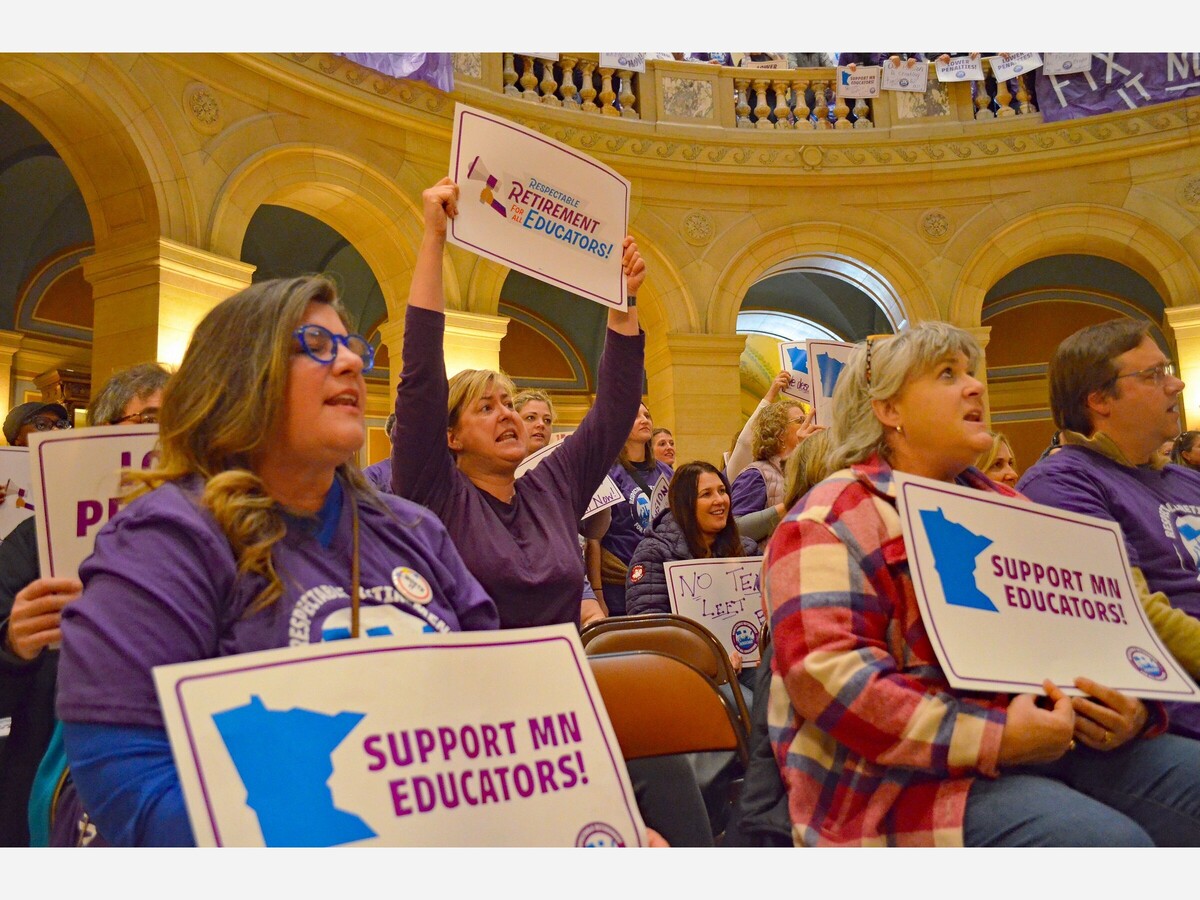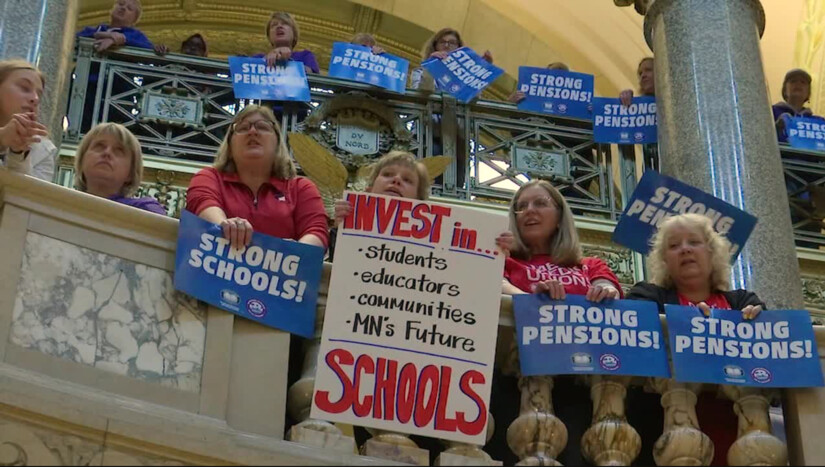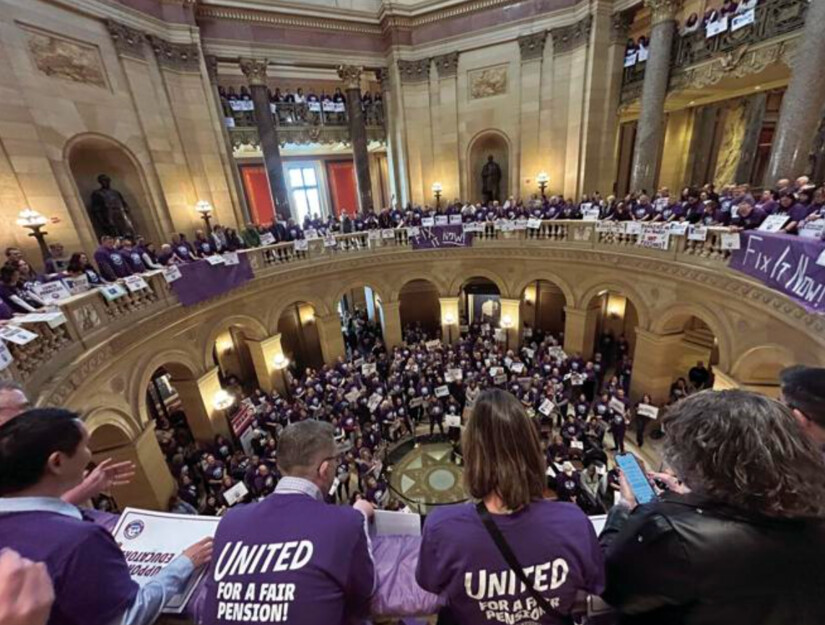Image


While hundreds of Education Minnesota teachers’ union members rallied inside the Capitol in St. Paul Saturday, former Anoka-Hennepin teacher Dan Larson was outside, talking about the uncertainties of retiring at age 62 and whether state lawmakers would pony up money for pension reform.
“It’s not just one thing, health care is a big part of it, as well as the pension, and when do you take your social security?” he says. “What’s the Legislature going to do? What’s their numbers, how much money do they have?”

State lawmakers are now hashing out details on a deal that would provide $80 million for pension funding for firefighters, police and teachers over the next two years.
About half of that would go to educators.
“The issue is money,” explains Education Minnesota President Denise Specht. “A change like this is going to require an ongoing investment from the state.”
At least one bill being discussed would reduce the teacher retirement age to 60 for those with 30 years of service and allow unreduced benefits, with increased cost-of-living adjustments.
“Our goal is to actually make improvements to our pensions,” notes Ryan Fiereck, a teacher from the St. Francis School District. “To be able to retain educators until they get to 60 years old, and that’s a big deal.”
The discussion about pensions comes after a study by the Minnesota Professional Educator Licensing and Standards Board.

It found that one in four Minnesotans with a teaching license isn’t teaching in a school, and that one-third of new teachers leave the profession within their first five years.
“We view our pension as a recruitment and retention tool,” Specht says. “We don’t have enough people going into our profession, and they’re leaving at high rates.”
There have been some positive signs for education funding at the Capitol.
House lawmakers Friday passed a bill that funds unemployment insurance for bus drivers, cafeteria staff and paraprofessionals.
A DFL House spokesperson says any changes to pensions will be part of a pensions committee bill and that negotiations are ongoing.
But so far, there’s no final bill yet. The hope of the union is that this finish line funding will encourage more people to join the teacher workforce and stay for the long term.
“We’ve got to figure out how to get people in the classroom and then stay in the classroom,” Specht declares. “And we believe this is a big part of it.”
Click here to view KSTP’s legislative tracker.
SOURCE: abc KSTP